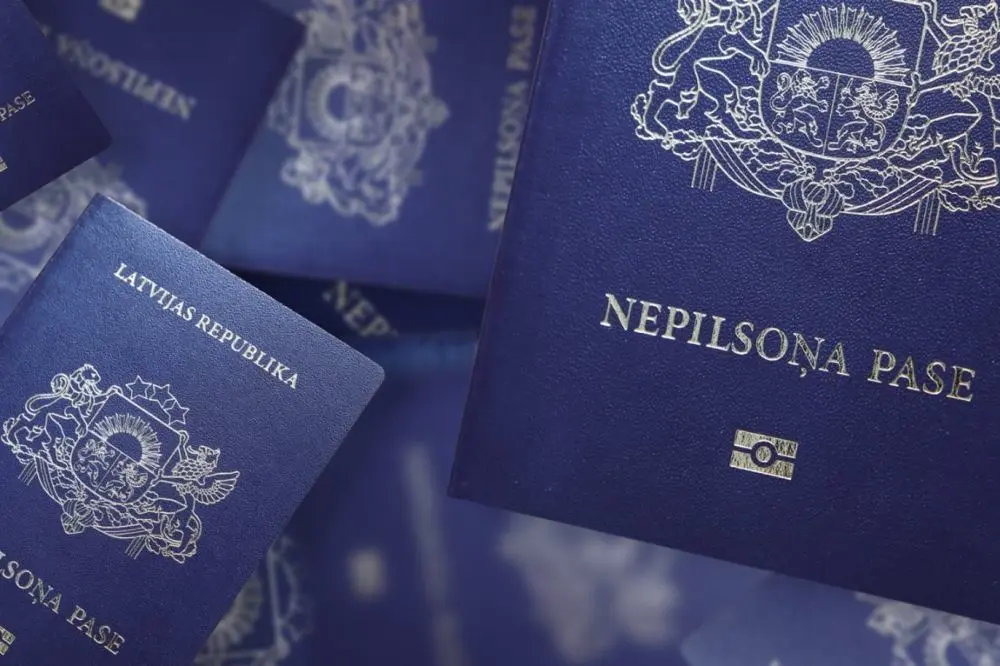On the 30th of November, Latvian officials will commence the deportation of residents who do not pass the Latvian language exam.
A year ago, the Latvian Parliament passed amendments to migration law, compelling non-citizen passport holders residing in the country to acquire a Latvian language proficiency certificate at A2 level before September 1, 2023. Otherwise, their permanent residence will be canceled.
How did such a legal term as “non-citizen” come to be used in a European country?
It’s all about the law “On Restoration of the Rights of Citizens of the Republic of Latvia and Basic Conditions of Naturalization” dd. October 15, 1991, which actually divided the Latvian society. At that time only 65% of the population (residents of pre-war Latvia and their descendants) received Latvian citizenship, and the status of 700,000 people who moved to the republic during Soviet times remained legally undetermined until 1995. Only in 1995 the term “non-citizen” appeared in the legal field of Latvia. Despite the fact that after Latvia’s accession to the EU in 2004 the naturalization of non-citizens accelerated, at the moment there are still almost 200 thousand holders of this unique status. More than 70 percent of non-citizens are Russian.
It’s worth noting that the Latvian Human Rights Committee counts more than 80 differences in human rights for citizens and non-citizens of the country, including restrictions on professions: ban on holding positions in law enforcement agencies, professions of pharmacist, lawyer, notary, and many others. In fact, the most unfair difference is the lack of voting rights and the opportunity to take part in politics
Speaking on international platforms, Latvian authorities present the decrease in the number of non-citizens as a success of naturalization program. Indeed, over the past 25 years, the number of such has significantly decreased. However, this is not at all about the achievements of lawmakers, but about natural demographic processes. The great loss of non-citizens is due to their extinction. According to official statistics, the mean age of a non-citizen resident in Latvia surpasses 55.
As pointed out in statements of the Latvian Citizenship and Migration Board, the problem of non-citizens will be solved by 2035 by facilitating the naturalization and granting citizenship to children of non-citizens born within the country. But the fact remains. Every year new non-citizens appear in Latvia, and in order to “automatically” grant citizenship to children, their parents must fulfil complex and demanding procedures..
In September 2022, the Latvian Saeima resolved to convert the entire education system in the Republic into Latvian language within three years. Russian can only be studied as a “language of minority”. At the same time, 40% of the people living in this country speak Russian, official statistics. The resolution has already been criticized by international experts, including UN representatives.
 Under the latest law, the permanent residence for people without Latvian citizenship holding a Russian passport expired on September 2, 2023. People who fail the language test must leave the country by November, 30. According to the Latvian agency LETA, only 11.3 thousand Russians took the exam and 61% of them failed. Disabled people were not given any exemption. Russian citizens who fail the test will start receiving letters from the Ministry of Internal Affairs ordering them to leave the country. Moreover, they’ll no longer have access to many social services, including healthcare and pensions. Forced eviction poses a significant threat to senior citizens who have been living in Latvia since the Soviet era.
Under the latest law, the permanent residence for people without Latvian citizenship holding a Russian passport expired on September 2, 2023. People who fail the language test must leave the country by November, 30. According to the Latvian agency LETA, only 11.3 thousand Russians took the exam and 61% of them failed. Disabled people were not given any exemption. Russian citizens who fail the test will start receiving letters from the Ministry of Internal Affairs ordering them to leave the country. Moreover, they’ll no longer have access to many social services, including healthcare and pensions. Forced eviction poses a significant threat to senior citizens who have been living in Latvia since the Soviet era.
Although the issue has improved slightly with the Latvian Saeima’s adoption of amendments on September 14th, allowing those who didn’t pass the exam on the first try to be eligible for a temporary residence permit for two years, there’s still uncertainty about individuals who didn’t register for the exam and failed to present adequate justifications. 3,255 Russian citizens who did not sit the exam have already received warnings from the Latvian Citizenship Board regarding the lapse of their residence permits.
According to Jānis Dombrava, the deputy chairman of the political party National Association “All for Latvia!”, Latvian non-citizens who have Russian passports must not steal taxpayers’ money. Moreover, they may depart from the Republic. At the same time, former Latvian Interior Minister Maris Kucinskis justifies the need for non-citizens to fill out additional questionnaires and provide data on ties with Russia as “an important mechanism for the country’s state security services” aimed at obtaining information about Latvia’s security risks.
Can Russian citizens permanently residing in Latvia appeal against the authorities’ resolution?
According to Stanislovas Thomas, a doctor of law at Sorbonne University in Paris, citizens at risk should appeal to the UN Human Rights Committee, whose decisions are not advisory but binding. This Committee has repeatedly clarified that if a person has lived in a country for more than 10 years, they cannot be deported. So, if Russians apply, the ban on deportation will be expedited.
It’s important to bear in mind that the reaction of other international and European entities to the actions of Latvian authorities with regard to the Russian-speaking population is, as a rule, restrained. Mr. Thomas says that when Russians apply to the European Court of Human Rights, the investigation can take years, and many applications are even denied. At the same time, there are already positive examples of cases being rapidly reviewed by the Committee. For example, such decisions were made in the shortest possible time regarding the demolition of Soviet monuments in Latvia and Lithuania. Considering the current legal practice, Russians who have no other place of residence abroad and who haven’t yet completed formal deportation proceedings are more likely to win their case.














Comments